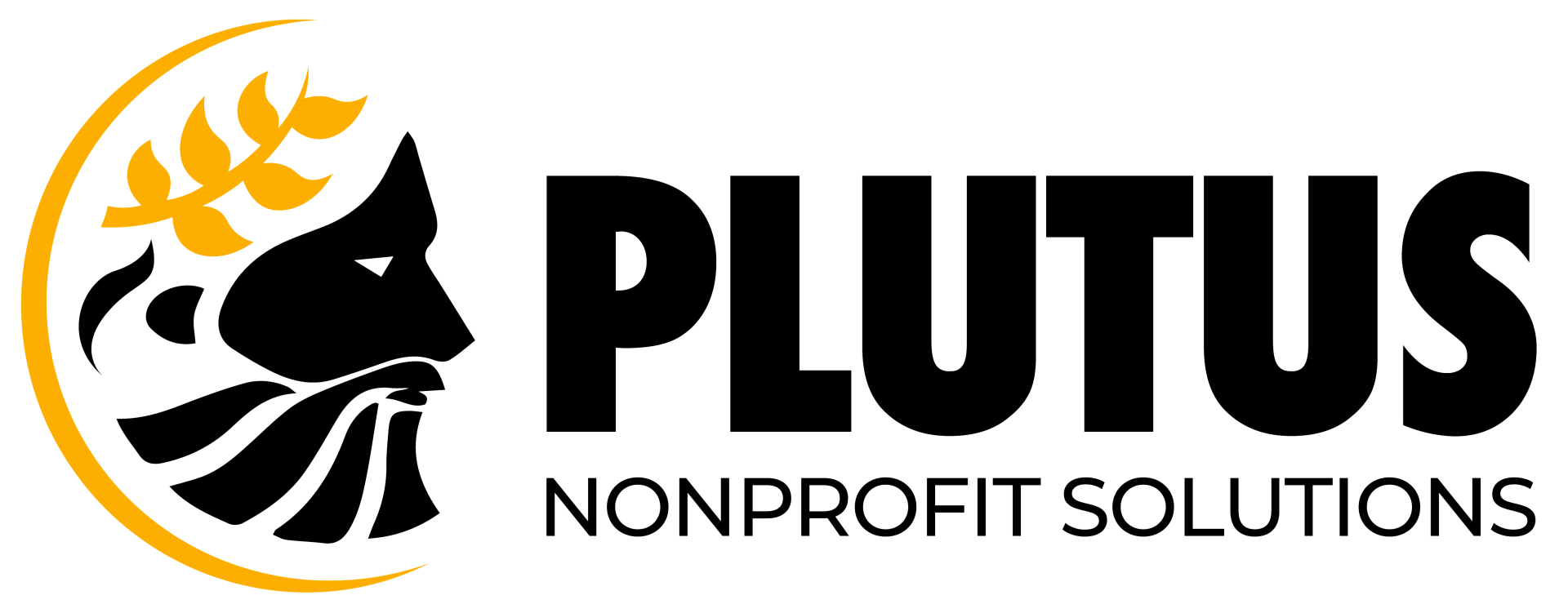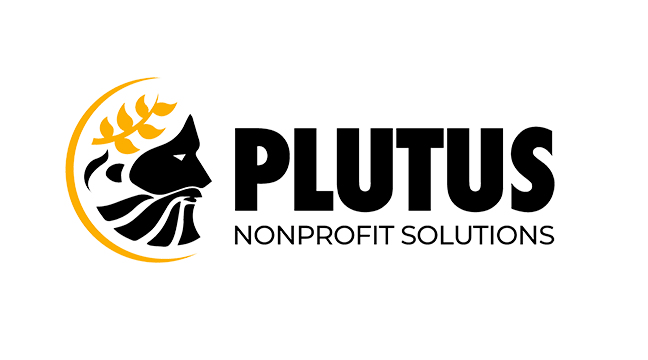Blog Layout
6 Tips For Choosing A Nonprofit Salesforce Consulting Partner
Insider Tips
Choosing the right consultant to help execute your Salesforce vision can be a grueling and time consuming process. With so many vendors, specialties, and package options it can make finding the right partner difficult. Here are tips and questions that every nonprofit should ask and consider during the vendor selection process and before signing with any firm.
Do they understand my industry?
With such a big market, there’s a lot of Salesforce consulting firms that have expertise in different parts of the broader ecosystem. Some firms specialize not just in nonprofits but specific sectors of the nonprofit market. There’s firms that focus on higher education, enterprise NGOs, political groups, and then smaller and medium-sized nonprofits and associations like Plutus! With so many options at your fingertips, It’s important to make sure that any potential partner has a basic understanding of your industry and how things work.
Does the firm know the difference between a 501(c)(3) and 501(c)(4) organization? Do they understand terms like fundraising and memberships? Do they understand what programs are? If they don’t, you can expect not only a worse customer experience but also a more costly one as generally firms charge just to learn about your industry. For this reason, it’s always good to understand how knowledgeable a partner is about your industry before entering into an engagement.
Is their pricing transparent?
Every firm has different pricing models and packages but not all firms are the same when it comes to pricing transparency. Is a potential vendor willing to give you their hourly rates or is their pricing sheet more like solving a puzzle? How are invoices issued and will I be aware if a project is going outside of scope -- or will I just get a surprise bill?
Ensuring that you have an understanding of how pricing, billing, and invoicing works is key to keeping costs under control and maintaining a healthy partner relationship. Many firms won’t proactively disclose this type of information during the sales process so it’s always worth asking for clear documentation.
Do they speak in terms I can understand?
You likely aren’t a Salesforce guru and you shouldn’t need to be when talking to a potential partner. Advisors should be able to explain things in lay terms and give you a broad understanding of any project or feature they’re pitching you on. If a sales guy is throwing buzz words and terms at you like “4th industrial revolution!” “creative disruption!” “innovative strategic approach!” it might be time to look somewhere else.
Before signing with any partner, you should be able to easily understand exactly what the firm does, how they can help empower you and your users on Salesforce, and what the process looks like. If you don’t have a strong understanding of this, you might get trapped in a relationship that sours for both parties.
What do they actually do?
Setting expectations for services before signing any contract is key. It’s helpful to understand if a vendor tells you your organization will receive 20 hours of services for a project, what exactly that entails. Does it mean they’re going to go in and do the work? Or are they just going to advise you on how to do something yourself?
Does your plan include set time for meetings and check-in points with a real person or does all communication need to be through an online ticketing portal? Understanding exactly what a specific service entails, how the consultant will work with you, and what their processes are is key to your success.
Do they offer ongoing support?
A lot of consulting groups will help you get up and running on Salesforce or build something inside of your system but don’t provide support or training after. Salesforce is a powerful tool and while some groups have internal resources that can handle all of their system needs, many need some form of ongoing outside help.
If ongoing support is something your organization needs, you should clearly ask if the firm offers those services before signing a contract. It’s generally better to receive ongoing support from the firm who built something for you since they’ve already invested in learning about your processes, have relationships with your staff, and understand your workflow. Consistency is key.
Are they really experts?
Many technology consulting companies focus on implementing and supporting multiple pieces of technology. Some firms support Salesforce, Hubspot, Microsoft Dynamics, RaisersEdge, and a plethora of other systems through consulting and implementation packages. If a firm tells you they implement and and work with all platforms that should raise a red flag. Firms that specialize in everything are generally never experts in anything.
For example, Plutus and our staff are generally tech savvy and could probably implement a client on Microsoft Dynamics. But would that really be the best experience for the customer and us since we don’t generally work with the system? The answer is likely no and it will almost always lead to higher costs, slower delivery, and unexpected delays and pain points. It may seem attractive to go to a firm that has multiple specialties but sometimes that can lead to problems and headaches.

June 5, 2024
Plutus Nonprofit Solutions, a leading provider of Salesforce implementation services for the nonprofit sector, today announced the departure of Alex Titus from his role as Managing Partner, Client Experience. Joshua Fimbres-Barcelo, formerly held the title of Managing Partner, Professional Services. In early 2023, Alex shared his intention to move on to new endeavors and a meticulous transition plan was put into place. Alex Titus has been an instrumental leader at Plutus Nonprofit Solutions, guiding the company through a period of significant growth and success. His dedication to the mission and vision of the organization has been invaluable, and his contributions will be remembered and appreciated. He will continue to serve as an advisor sharing any special knowledge as needed. Joshua Fimbres-Barcelo expressed his gratitude for Alex's leadership, saying" "I want to thank Alex for his partnership throughout our journey together at Plutus Nonprofit Solutions. His passion for our mission has been inspiring, and I wish him all the best in his future endeavors." Joshua Fimbres-Barcelo also shared his excitement about the future of the company under his leadership, stating: "I am thrilled to take on the role of CEO and continue the work we started together. I am confident in the new leadership team we have assembled and in the two highly functional business units our clients have come to depend on, Projects and Support. The long term view we have taken and the high-quality team members we have recruited will ensure we continue to provide innovative solutions to our nonprofit clients. I look forward to leading Plutus Nonprofit Solutions into its next chapter of growth and success." Plutus Nonprofit Solutions remains committed to its mission of empowering nonprofits with the tools and resources they need to make a positive impact in their communities. The company looks forward to continuing to serve its clients and partners under Joshua Fimbres-Barcelo's leadership. About Plutus Nonprofit Solutions: Started in 2019, Plutus Nonprofit Solutions is an award-winning provider of Salesforce implementation, customization and support services for associations and nonprofit organizations. Find more information about Plutus Nonprofit Solutions at Plutus4nonprofits.com .

April 22, 2024
Overview Hasbara Fellowship, a Jewish nonprofit organization that takes Jewish students to the holy land to better connect with their heritage, was looking to better manage the various components of the application process. In order to attend the trip, students need to apply to the program, filling out necessary schooling and family information. The organization then reviews the application, approves or denies the student applicant, and then notifies them of their status. Once the student has been accepted, they then have to fill out further forms and provide additional information in order to attend the trip. All of these steps were previously conducted manually, creating time-consuming and unnecessary work for the organization’s team. Using Salesforce and Formstack, we were able to generate a seamless application process using packages that integrate the entire trip process within a single cloud-based system for the organization. Challenges How do we streamline the application process of students traveling abroad? This organization had a number of issues with their original application process. Previously, the organization had to manually email back and forth with applicants in order to provide applications, approve of applications, provide necessary forms and documents, and obtain trip payments. Staff members would manually have to originate and distribute acceptance or rejection letters and necessary trip forms. They would send out individual Stripe invoices to each of the students. All of these steps created unnecessary problems for the organization’s team as they were having to deal with these issues for thousands of applicants every year. This type of manual process enabled a high margin of error and is not work you want your team to be laboring over. Solutions Using Salesforce and additional applications, Plutus was able to create a workflow to meet Hasbara’s needs. Salesforce Salesforce is a cloud-based CMS software that allows for organizations to simplify the management of their memberships, fundraising, marketing, analytics, and so much more. While Salesforce’s original design was for for-profit groups, they have since created a variety of success packages for nonprofits and associations to utilize Salesforce’s unique capabilities.

April 22, 2024
Executive Summary A Christian nonprofit tasked Plutus with curating a strategy to better integrate and streamline their donor prospecting and funnel process with their Salesforce CRM. The organization wanted to be able to automate the wealth screening of new donors and the process of allocating and aligning those individuals to the different donor officers. To accomplish, Plutus utilized iWave and the Salesforce platform to create an automated scanning and pipeline distribution process. This strategy allowed the organization to have better insights into new donors, have fundraisers spend more time on raising funds and less time on research, and increased outreach to high-value prospects. This case study will illustrates the ways in which nonprofits can utilize the powerful combination of Salesforce and iWave to take their fundraising to the next-level. Challenges The organization faced a number of challenges with its original process. They had no way to identify wealthy donors without manual research, sort prospects and current donors by different levels and pipelines, and distribute these donors to specific development officer portfolios. These processes were not only inefficient in their original state but also hindered future growth as the organization sought to dramatically increase the scale of its small and mid-level giving operation. Solutions Plutus Plutus is your Nonprofit Success Agency, founded with the purpose of helping nonprofits and associations adopt the Salesforce platform to unify fundraising, memberships, events, and program management, and provide a 360 overview of the individuals your organization interact with. Plutus co-founders have extensive experience working with hundreds of not-for-profit organizations and are proud to have completed over 200 projects — from small configurations to large implementations from legacy systems. Plutus advised and created the strategy to help the organization meet its ambitious goals. Salesforce Salesforce is the world’s leading customer relationship management platform for nonprofit organizations seeking to utilize best-in-class technology. This multifaceted CRM tool allows organizations to manage their donors, constituents, and partners in a strategic and efficient way that can be customized to your processes and needs. Salesforce also integrates with thousands of different products on its app exchange as many leading technologies build a connection with them to gain access to their significant customer base. iWave iWave is a leading fundraising intelligence software that helps organizations find ideal donors with pinpoint accuracy, cultivate strong relationships, and build a better tomorrow. iWave offers a seamless user experience that helps even the smallest not-for-profit organizations gain actionable insight into their existing donor network. iWave also has an integration built into Salesforce so there’s no need for manual data entry or tedious upload via spreadsheet. Strategy Plutus and the nonprofit organization collaborated together to complete a full summary of their requirements and needs around the strategy and solution design. Through this setup, Plutus identified the workflow, identified donor buckets that needed to be implemented, and crafted the customization for iWave to automatically scan new donors being stored in the Salesforce platform. Plutus led the implementation of iWave into the client’s Salesforce environment through iWave’s managed package that installs with ease. Next, Plutus created a process using custom development to automatically wealth-scan donors as they came into the database. This process also wouldn’t scan old donors in order to preserve and efficiently use iWave scanning credits. Following this, Plutus created an automation to assign donors to specific donor “buckets” based on each individual’s estimated giving capacity. This tool was built using native Salesforce automation logic and data being pulled into Salesforce from iWave’s powerful scanning technology. At the end of the process, each donor was assigned a wealth score and donor funnel with no human interaction required. New donors and their recommended buckets were automatically sent to a staff member on a weekly basis using Salesforce reports.

April 22, 2024
Overview Salesforce is the best customer relationship management (CRM) tool for storing and managing all your organization’s data. The software easily allows you to store all types of data on constituents, donors, members, and grassroots supporters. But what if you want to visualize your and see that? Well, Salesforce has you covered with its powerful dashboard creation feature. This year, Plutus created dashboards for one of our nonprofit clients to help them better visualize and understand from a high-level their network data. Dashboard Generation General Displays Plutus helped this nonprofit organization create a dashboard to visualize their most important network information from the past year. In this dashboard, the organization is able to clearly see the numbers of new members added, key demographics of members, and alumni added. This information selected to be displayed was specifically chosen by this group, and can be altered for whatever is important to your organization. Salesforce also gives you the power and tools to track goals which can be set by your organization. As seen in the chart below, some of the numbers are green, yellow, and red. These colors show the organization’s progress towards its goals for certain segments of its network. As you can see below, the organization met some of its goals, nearly met others, and came up short on some. This high-level display can help executives and team leaders know how close they are to certain goals.

April 22, 2024
Overview Salesforce’s reporting tool is a sure-fire method to bring your organization’s data together in a viewable manner. Whether you need to collect donor data from the past year or view new membership information from a recent event, reports are the easiest way to gather and easily digest those figures. Recently, Plutus was even able to use Salesforce Reports to bring some Christmas cheer by helping one of our clients build a report of key Contacts for their Christmas card mailing list. Read through this short case study to get the rundown on what we did! Challenge A Plutus client that focuses on advancing democracy in the United States, reached out asking for help building their annual Christmas card list. In past years, this group would manually curate their list through a Microsoft Excel spreadsheet and add individuals and their addresses to that spreadsheet one-by-one. This process was tedious, time consuming, and missed key data capture as some new addresses were not being updated back into Salesforce. This list also took many hours to develop instead of being able to be quickly pulled from the database. Solution Plutus was able to streamline this process by first performing some basic data clean up and then creating fields to track Christmas addresses for each Contact to allow for a single report for the organization to conduct the mailing. First, we pulled a comprehensive list of their data from Salesforce in order to perform a v-look up from Excel to match as many Contacts and Accounts as possible. Plutus was then able to match some Contacts and Accounts with their respective IDs to upload a portion of the addresses from the excel file. The rest of the data was then cleaned by hand in conjunction with the organization’s staff.

By Joshua Fimbres
•
April 22, 2024
Overview Salesforce can be used to do almost everything for nonprofits and associations. Nonprofits can track key donor data and demographics, and associations can track memberships and events. But have you ever wanted to generate documents directly from Salesforce with your data? Maybe a year-end report or invoice? We’ve got just the tool for you and it’s called Apsona. Apsona works by pulling information across multiple reports throughout your Salesforce community and uses that information to generate documents with ease and speed! This case study will explore the ways in which Apsona can efficiently and effectively expand your Salesforce capabilities. Document Generation From certificates, to end of year statements and everything in-between, Apsona makes creating custom templates easy and helps turn your Salesforce data into beautiful professional looking documents. Here are a few examples of Apsona documents that we’ve built for our customers. Donor Biographies Plutus has used Apsona to create simple and clean donor briefing biographies for our clients that conduct major gift fundraising. Traditionally, organizations would have to filter through all of their donors individually, gather their “specific information that is not included in the filters within their profiles,” and then one by one generate bio documents for each donor. But with Apsona, our clients generate these briefings on mass with the click of a button. Here’s a simple example we’ve used for showcasing purposes:




